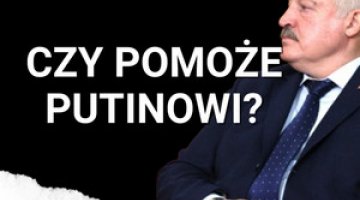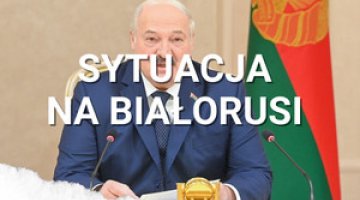Belarus is trying to use the issue of political prisoners as a bargaining chip in its relations with the West
On 25 January at a press conference Iryna Khalip, the wife of one of Belarus's political prisoners, Andrei Sannikau, announced that already last November her husband, probably pressured by tortures and threats, asked President Alexander Lukashenka for a pardon. It was possible for Ms Khalip to obtain this information only on 24 January during what was her first visit in prison for three months. Andrei Sannikau was one of Alexander Lukashenka's main rivals in the presidential election in December 2010. As one of the leaders of the post-election protest he was detained and sentenced to five years in prison for organising mass riots. Eleven people are currently considered political prisoners in Belarus. Lukashenka has announced several times that he would grant them a pardon but on condition that they submit a request for it.
-
Irina Khalip's account is further confirmation of numerous rumours about the brutal treatment of political prisoners in Belarusian jails. According to available information, other political prisoners - for example another opposition candidate Mikola Statkievich – are also being urged to write requests for a pardon. It seems that these actions are being undertaken at President Lukashenka's direct instruction, as he wants to break and humiliate his most determined opponents, one of these being Andrei Sannikov.
-
Lukashenka believes that the prisoners will request a pardon under pressure, which he will be able to use in his propaganda and present as an act of repentance and recognition of the legitimacy of his rule. He will thus demonstrate to society, the regime's officials and foreign observers that his dominant position in the state is unchallengeable.
-
The fact that despite Sannikau's request Lukashenka is delaying the decision about pardoning him may indicate that he intends to exploit the problem of political prisoners in his relations with the West at a more opportune moment (for example, should there be an economic breakdown or a possible crisis in Belarus's relations with Russia). It cannot be ruled out that the Belarusian regime will try to use this argument in its negotiations with the International Monetary Fund (IMF). The head of Belarus's Central Bank announced on 30 January that she would be applying for a new loan in the immediate future in order to pay off current liabilities to the IMF which amount to approximately US$ 3.8 billion.
- It seems that Alexander Lukashenka once again believes that by releasing political prisoners he will persuade the West to open a political dialogue with Belarus and grant financial support. At the same time nothing proves that the regime is ready for political reforms or even a court rehabilitation of the sentenced opposition activists, which for the EU and the US is one of the key conditions for dialogue to resume. For the IMF the decisive factor will be the assessment of the Belarusian government's macroeconomic policy about which the IMF has had many reservations for some time. Minsk's actions will thus not lift the country out of its international self-isolation.





